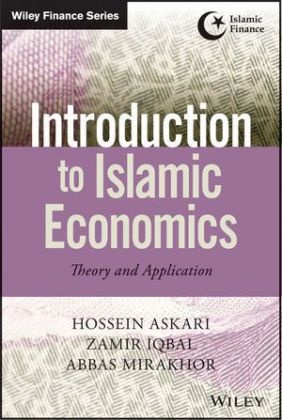Ulteriori informazioni
Gain deeper insight into the principles and theory of Islamic economics
Introduction to Islamic Economics: Theory and Application provides an overview of the organizing principles and fundamentals of an Islamic economy. With deep discussion of the characteristics, rationale, key institutions, objectives, and instruments at work, the book addresses the core economic principles underlying a system based on the foundational teachings of Islam, and examines the implications for economic policies. Social welfare, economic justice, market functionality, efficiency, and equity are explored from an Islamic perspective, and the role and instruments of fiscal and monetary policy in Islamic systems are used to illustrate contemporary applications.
Universities around the globe are offering courses on Islamic economics and finance, but despite the industry's rapid growth, most research has been focused on the financial principles rather than underlying economic principles. The first book of its kind, Introduction to Islamic Economics brings all the key concepts together into one reference volume. By outlining the ways in which Islamic finance and Islamic economics interrelate, this book can help readers to:
* Develop an understanding of the Islamic economic system and its institutional scaffolding
* Differentiate between the major characteristics of the dominant conventional economy and one based on the fundamental sources of Islam
* Understand the conditions that must be met for a just, well-balanced, stable, and growing economy
* Clarify the role of State, public policy, and risk-sharing in the Islamic financial system
The Islamic financial system is expanding quickly, and those looking to increase their relevance in a changing economic landscape must get up to speed. Introduction to Islamic Economics provides a comprehensive overview of underlying economic system offering a deeper understanding of the feature of the system. This book is an excellent complement to Introduction to Islamic Finance, 2E by Iqbal and Mirakhor.
Sommario
I Introduction
II Economic Systems
III Key Islamic Economic Institutions
IV Islamic Economic System
V Key Micro-Economics Issues
VI Key Macro-Economic Issues
VII Economic and Social Welfare
VIII Role of State
IX Risk-Sharing Financial System
X Public Policy Management
Info autore
Hossein Askari is the Iran Professor of International Business and International Affairs at the George Washington University. Before coming to GW, he was a professor of Business and Middle Studies at the University of Texas at Austin and assistant professor of Economics at Tufts University. He has also served on the executive board of the International Monetary Fund and as consultant to a number of governments, institutions, and multinational corporations. He received all his university education at the Massachusetts Institute of Technology, where he earned a BS in civil engineering and a PhD in economics.
Zamir Iqbal is a lead specialist at Finance and Markets (F&M) Global Practice of the World Bank. He heads the World Bank Global Center for Islamic Finance Development in Istanbul. He has more than 20 years of experience in risk management, capital markets, and asset management at the World Bank Treasury. Islamic finance is his research focus, and he has coauthored several books on Islamic finance topics such as banking risk, financial stability, and risk sharing. His most recent coedited book,
Economic Development and Islamic Finance, was published by the World Bank in 2013. He earned his PhD in international finance from the George Washington University and serves on the professional faculty at the Carey Business School of Johns Hopkins University.
Abbas Mirakhor is currently the first holder of the chair of Islamic Finance at the International Center for Education in Islamic Finance (INCEIF). He served as the dean of the executive board of the International Monetary Fund from 1997 to 2008 and as the executive director representing Afghanistan, Algeria, Ghana, Iran, Morocco, Pakistan, and Tunisia from 1990 to 2008. He has authored numerous publications and research papers on Islamic finance; among them are
Introduction to Islamic Finance (Wiley 2011),
Risk Sharing in Islamic Finance (Wiley 2011), and
The Stability of Islamic Finance (Wiley 2010).
Riassunto
Gain deeper insight into the principles and theory of Islamic economics Introduction to Islamic Economics: Theory and Application provides an overview of the organizing principles and fundamentals of an Islamic economy.

